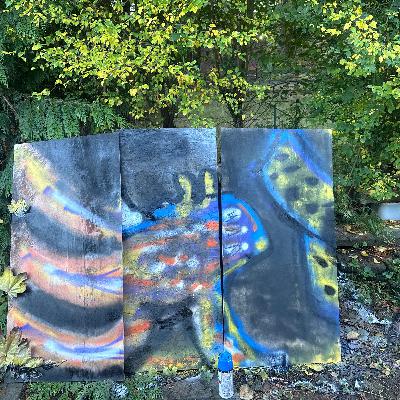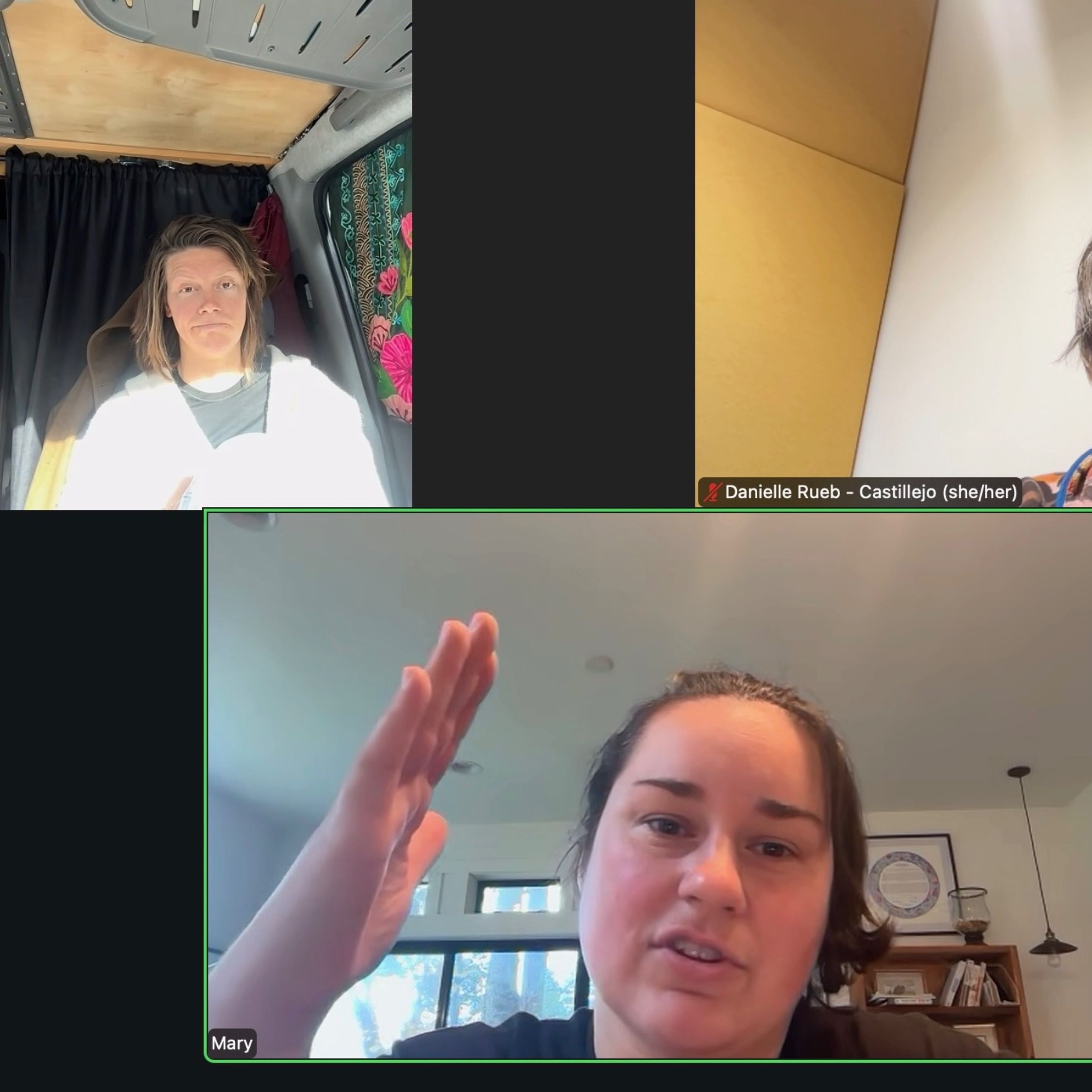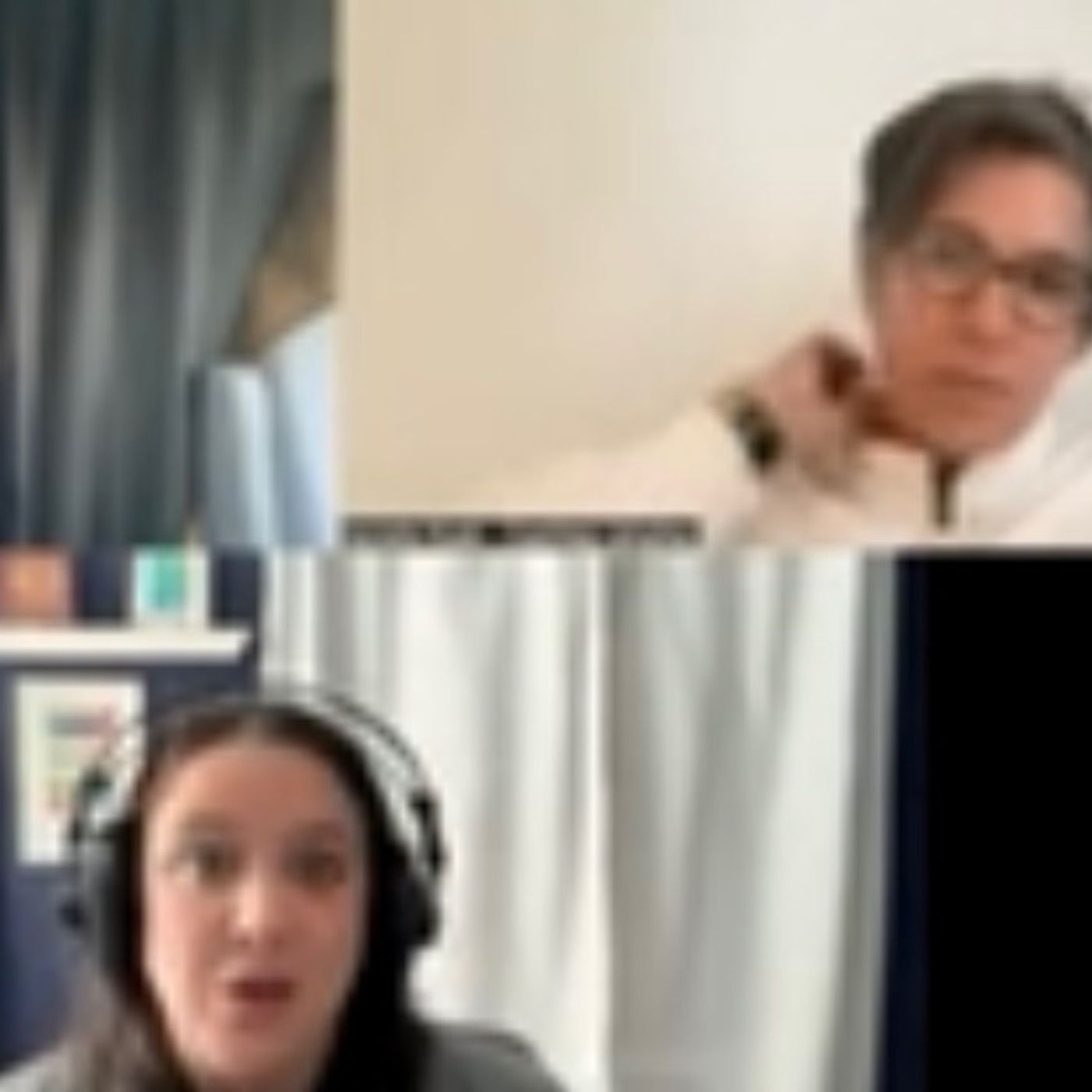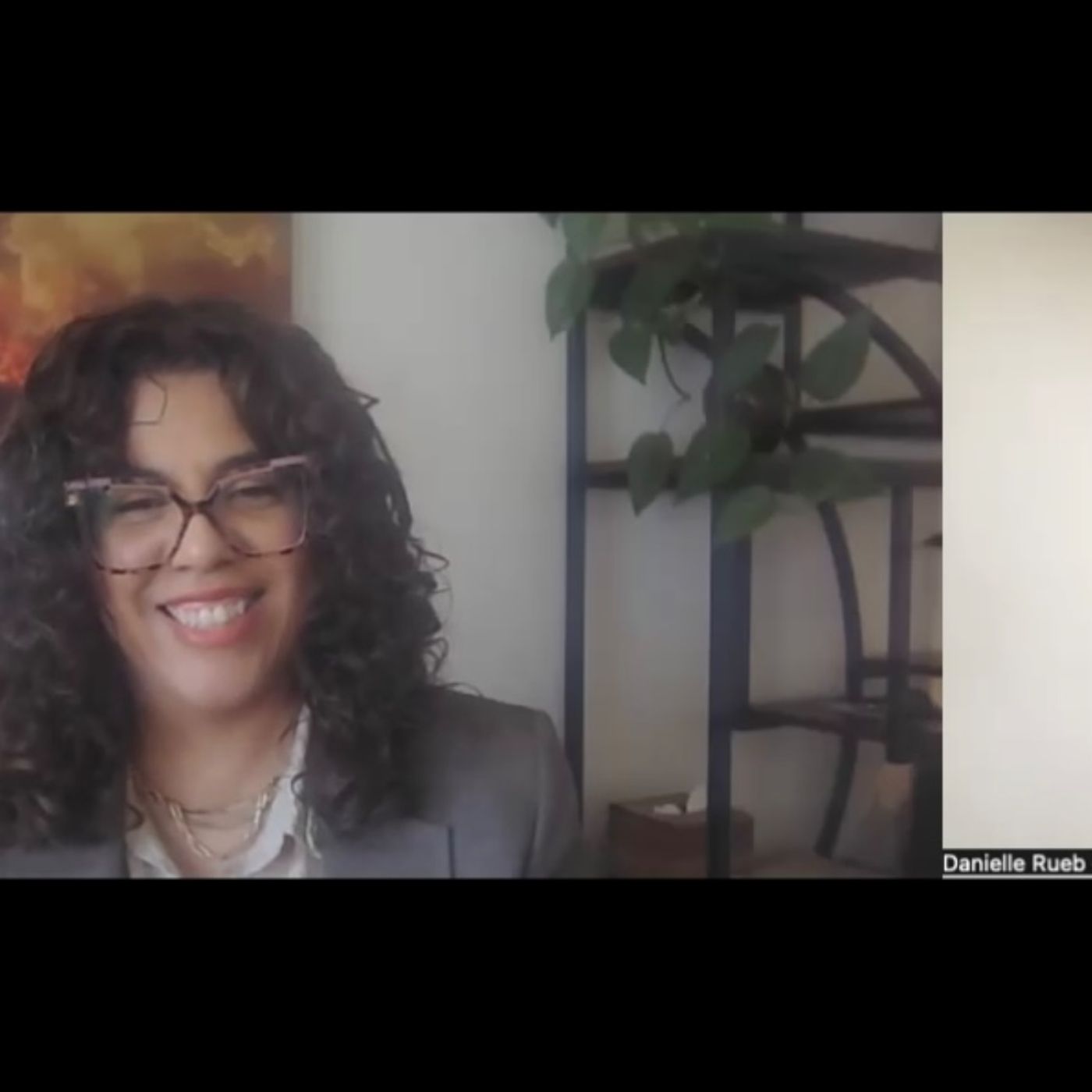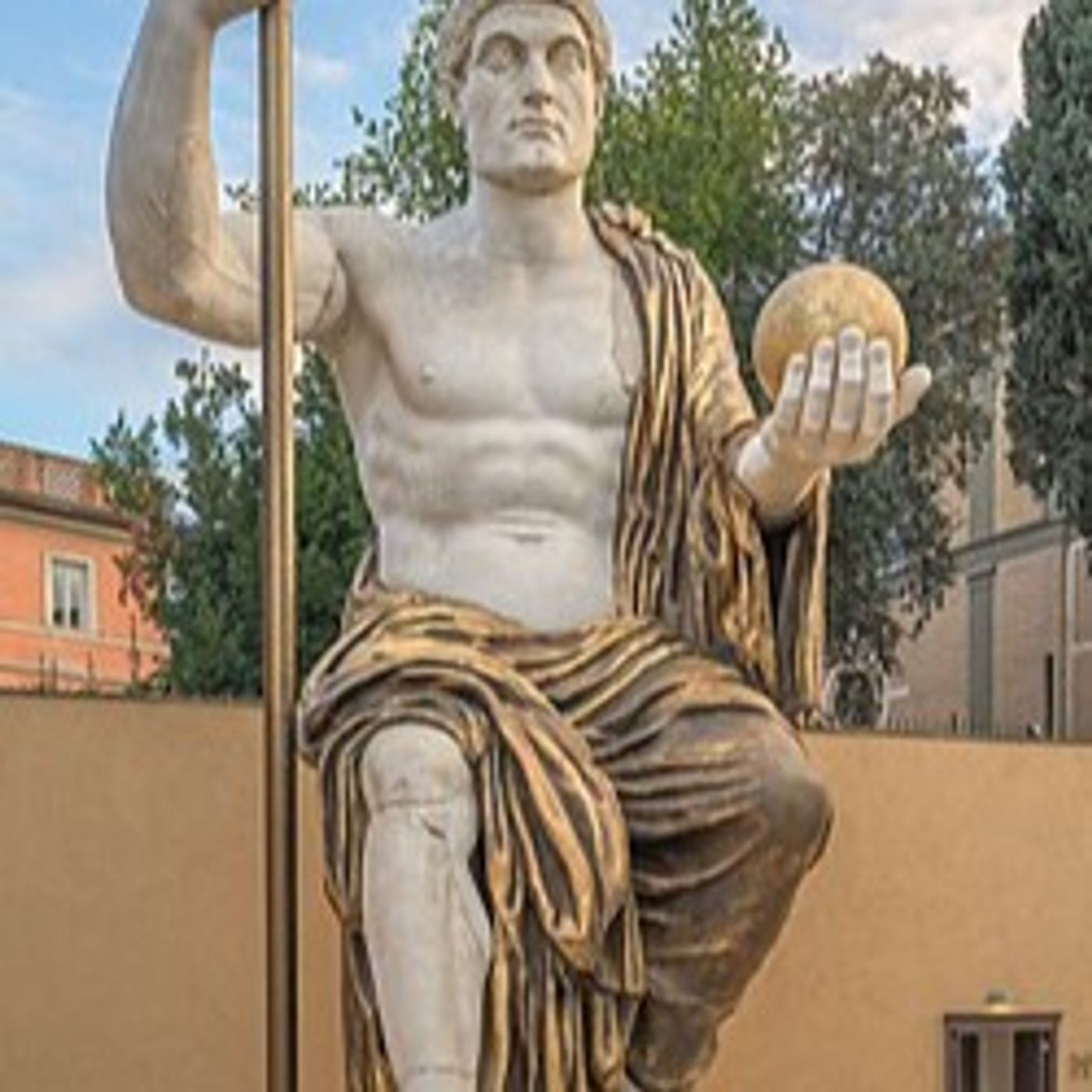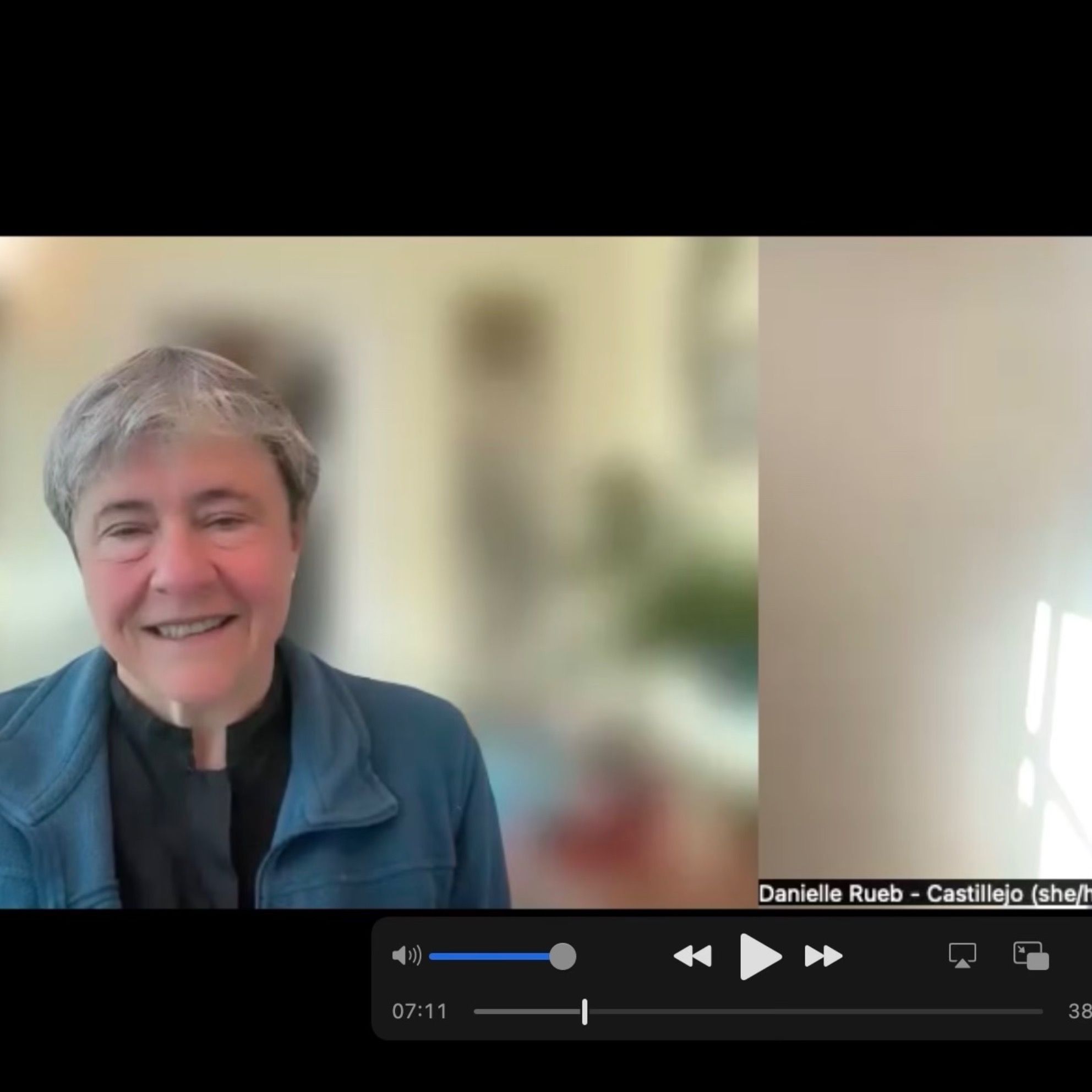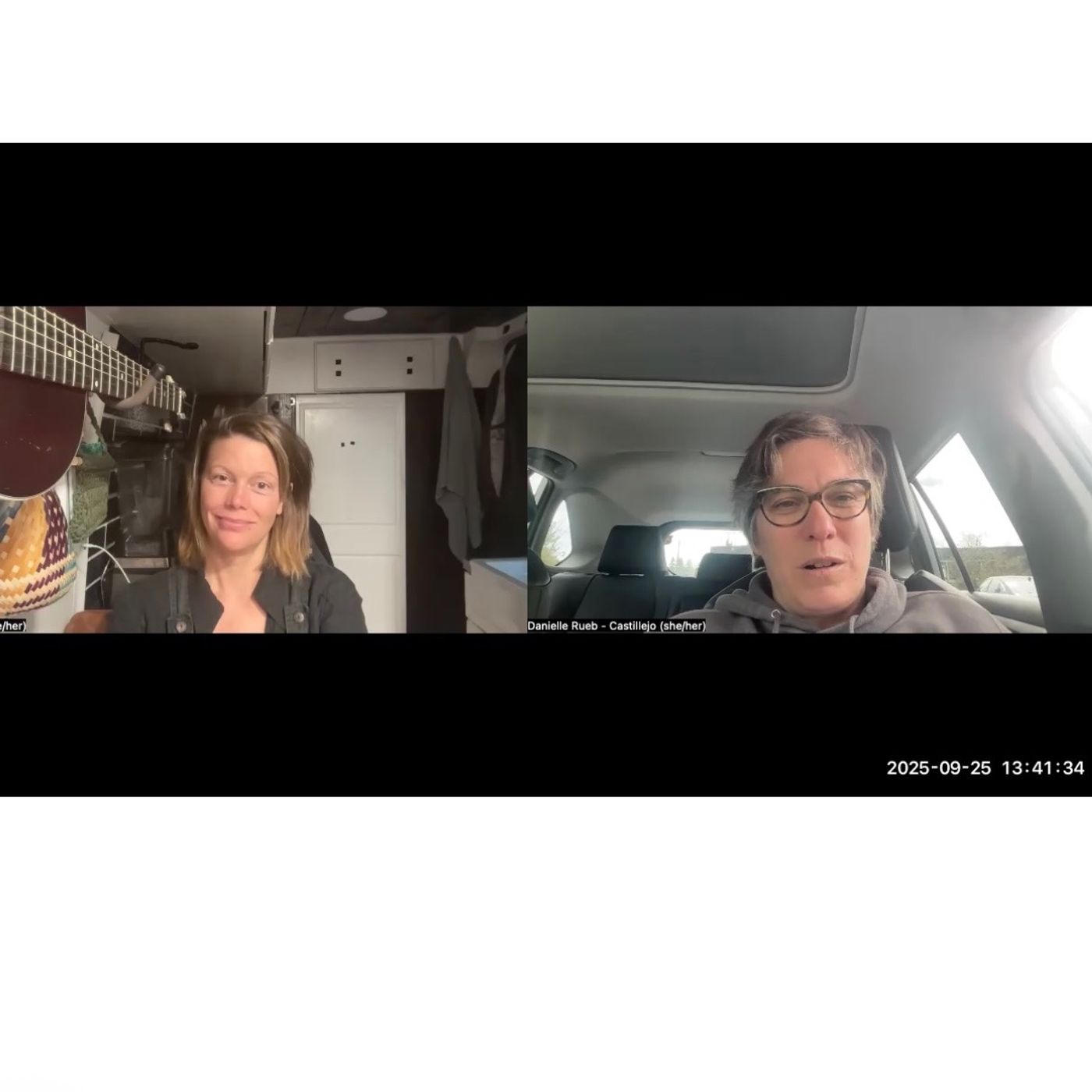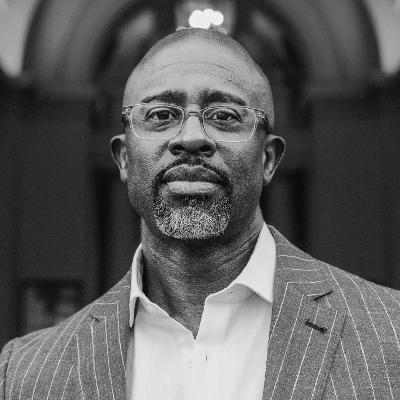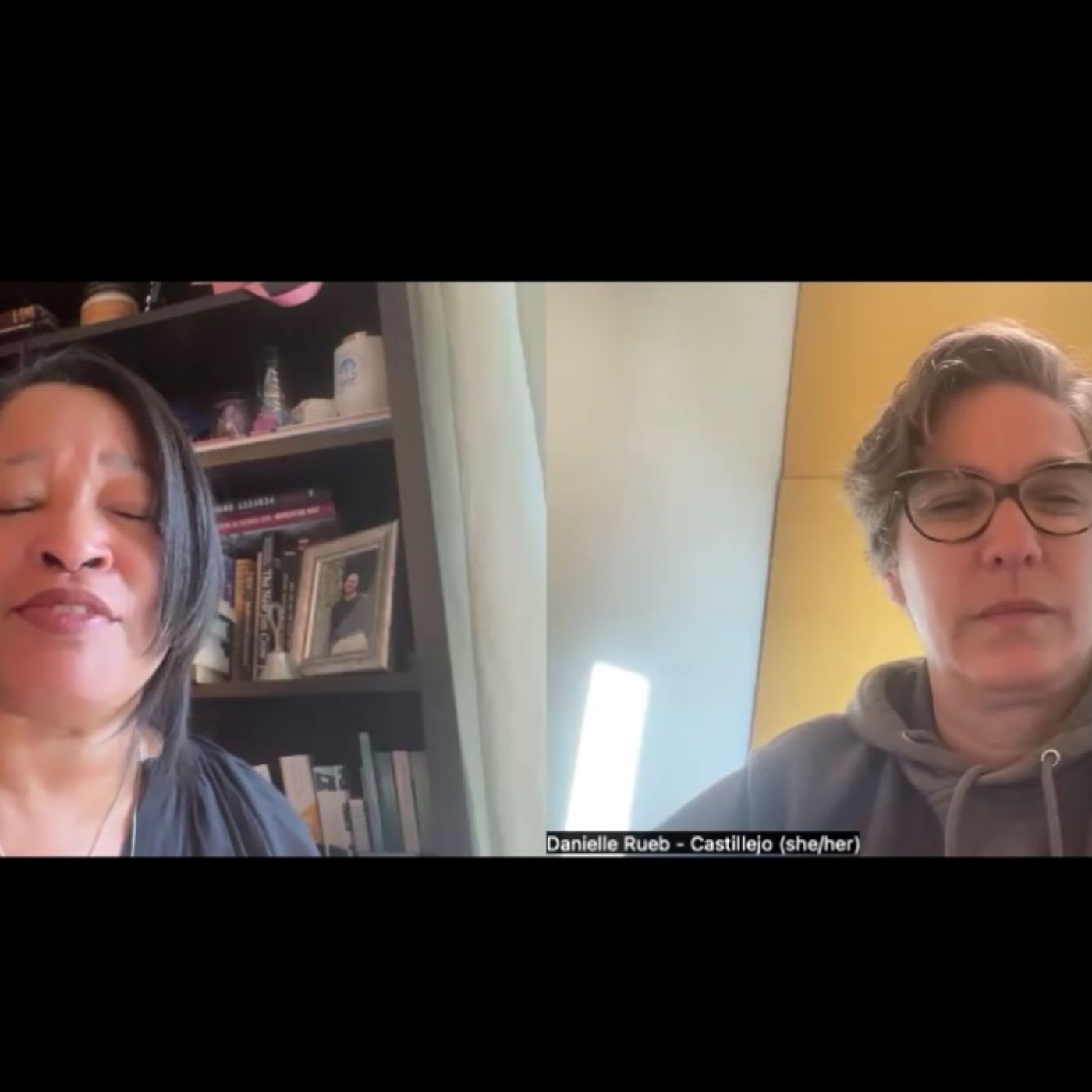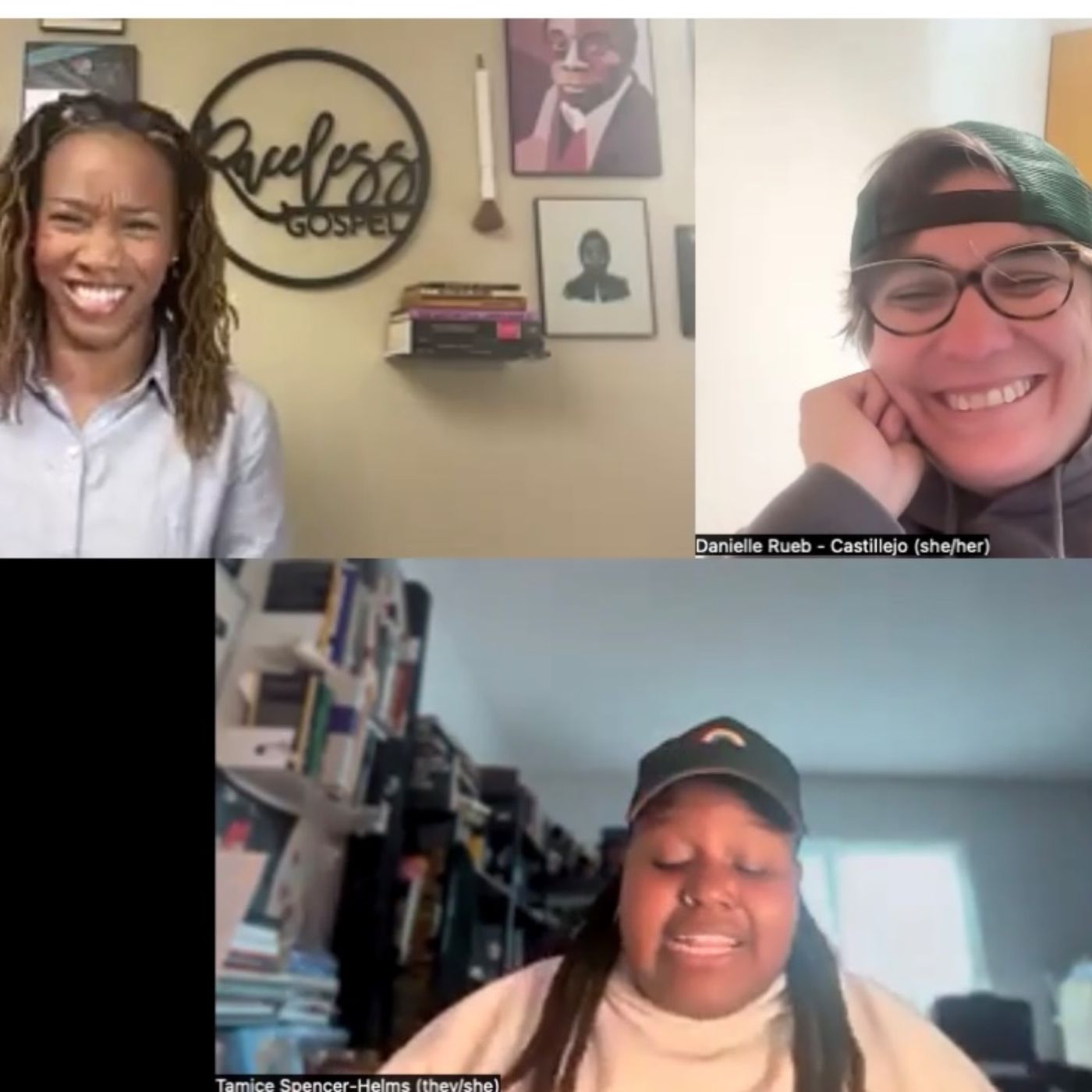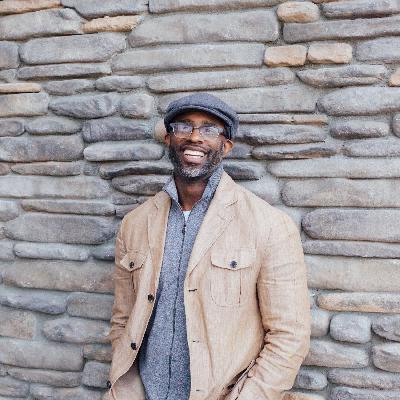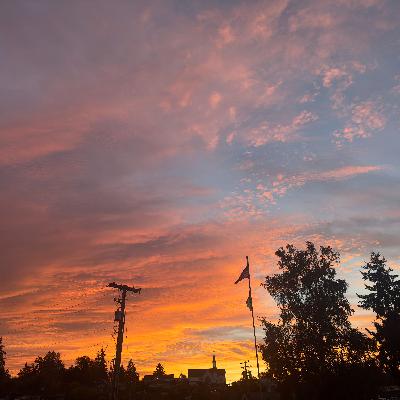Season 6, Episode 11: Jenny McGrath, Renee Begay, and Rebecca W. Walston on Resilience and Die De Los Metros
Description
Guest Bio: Renee Kylestewa Begay is from the Pueblo of Zuni in Southwest New Mexico. She is a mother to three daughters and married to high school sweetheart Donnie Begay. During her undergrad, she founded the Nations movement—a national ministry...
Good morning. It's October 30th, 2025. Can you believe it? So I'm releasing these videos. Today's videos on resilience. Four distinct cultures coming at you. Jenny McGrath. Me, Danielle, my friend Renee Begay from New Mexico and Rebecca Wheeler, Walston. Tune in, listen to the distinctly different places we're coming from and how we're each thinking about resilience. And then find a way that that impacts you and your own community and you can create more resilience, more generosity, more connection to one another. It's what we need in this moment. Oh, and this is The Arise Podcast, and it's online. If you want to download, listen to it. There you can as well.
Renee Begay (00:14 ):
Okay, cool. Okay, so for those watching my introduction, I'll do it in my language. So my name is Renee Bega. I just spoke in my language, which is I'm from the Pueblo of Zuni tribe in Southwest New Mexico, and I shared the way that we relate to one another. So you share the clan system that you're from. So being a matrilineal society, we belong to our, there's lineage and then we are a child of our father's side of the family. And so I belong to the Sandhill Crane clan as my mom is my grandma. And then my daughters are Sandhill Crane, and then I'm a child of the Eagle Clan, which is my dad's side. So if I do introduce myself in Zuni and I say these clans, then people know, oh, okay, you're from this family, or I'm, or if I meet others that are probably Child of Crane, then I know that I have responsibility toward them. We figure out responsibility toward each other in the community and stuff, who's related to all those things. Yeah. And here in New Mexico, there are 19 Pueblo tribes, two to three Apache tribes, and then one Navajo nation tribe. So there's a large population of indigenous tribes here in New Mexico. So grateful and glad to be here.
(02:22 ):
Yeah. I guess I can answer your question about what comes to mind with just the word resilience, but even you saying a d Los Muertos, for me that was like, oh, that's self-determination, something that you practice to keep it going, to remember all those things. And then when you mentioned the family, Jenny, I was like, I think I did watch it and I looked on my phone to go look for it, and I was like, oh yeah, I remember watching that. I have a really short-term memory with books or things that I watch. I don't remember exactly details, but I know how I felt. And I know when I was watching that show, I was just like, whoa, this is crazy.
(03:12 ):
So yes, I remember watching that docuseries. And then I think Rebecca, when you're talking about, I was thinking through resilience feels like this vacillation between different levels, levels of the individual in relation to the community, how much do we participate in self discovery, self-determination, all those things, but then also connect it to community. How do we continue to do that as a community to stay resilient or keep practicing what we've been taught? But then also generationally too, I think that every generation has to figure out based on their experience in this modern world, what to do with the information and the knowledge that is given to us, and then how to kind of encourage the next generation too. So I was just thinking of all those scenes when I was listening to you guys.
Rebecca (04:25 ):
Yeah, when you said the generational thing that each generation has to decide what to do with the information given to them. This past weekend in the last week or so was that second New Kings march, and there's some conversation about the fact that it was overwhelmingly white and in my community that conversation has been, we weren't there. And what does that mean, right? Or the noticing that typically in this country when there are protests around human rights, typically there's a pretty solid black contingency that's part of that conversation. And so I just have been aware internally the conversation has been, we're not coming to this one. We're tired. And when I say I say black women specifically in some instances, the larger black community, we are tired.
(05:28 ):
We are tapping out after what happened in the last election. And I have a lot of ambivalence about that tapping out. I'm not sure how I feel about it, but it does make me think about what you said that in this moment my community is taking the information given to them and making a conscious choice to do something different than what we have done historically. So that's what I thought about when you were mentioning the generational sort of space that's there. What do we do with that and what does that mean about what we pass to the next generation?
Danielle (06:09 ):
Through this moment. So I think it's interesting to say, I think Rebecca said something about does your resilience, what does it feel grounded in or does it feel solid? I can't remember exactly how she put it. And yeah, she's frozen a bit on my screen, so I'll check in with her when she gets back. And I would say I felt like this week when I was thinking about my ancestors, I felt in having conversations in my family of origin around race and assimilation, just that there was this in-between generation. And I mean like you mentioned the voting, you saw it in our voting block, the Latino voting block pretty clearly represented.
(07:09 ):
There was this hard push for assimilation, really hard push and the in-between. And I feel like my generation is saying that didn't work. And so we know the stories of our ancestors, but how did we interpret those stories to mean many of us, I would say in our community to mean that we don't fight for justice? How did we reinterpret those stories to mean the best course was silence or forgetting why people migrated. The reason for migration was not because there was a hate for our land. That's very clear to me. The reason for migration was what we see now happening with Venezuela. It was ongoing oppression of our people through the, well, in my case, through the Mexican government and collaboration with the United States government that exacerbated poverty and hunger, which then led to migration. So do we forget that? It seems like we did. And in some, I wondered to myself, well, how did a guy like Cesar Chavez or I, how did they not forget that? How did they remember that? So I think resilience for me is thinking Los was like, who were my ancestors remembering why they moved and remembering what this moment is asking me to do. Is it asking me to move somewhere and maybe physically move or mentally move or I don't know what the movement means, but it's some kind of movement. So that's kind of what I think
Renee (09:07 ):
I'm seeing the importance of, even just in this conversation, kind of the idea of the trans narrative across all communities, the importance of storytelling amongst each other, sharing stories with each other of these things. Like even just hearing you Danielle of origins of reasons for migration or things like that, I'm sure very relatable. And we have migration stories too, even within indigenous on this continent and everything. So I think even just the importance of storytelling amongst each other to be able to remember together what these things are. I think even just when we had the opportunity to go to Montgomery and go to the Rosa Parks Museum, it, you hear the macro story of what happened, but when you actually walk through the museum and read every exhibition, every paragraph, you start learning the micro stuff of the story there. Maybe it wasn't everyone was a hundred percent, there was still this wrestling within the community of what to do, how to do it, trying to figure out the best way to do good amongst each other, to do right by each other and stuff like that. So I just think about the importance of that too. I think Danielle, when you mentioned resilience, a lot of times it doesn't feel good to practice resilience.
(<a href="https://www.rev.com/transcript-editor/shared/4uWxE2AhHlaCDR-79EozKLtqxK_8RkEy7NZB8jBu7j5FX4zdxJ1gXIx_TcG9vv5wgQ54onlksZ9fHYMvzSrE-nVcvCc?loadF

